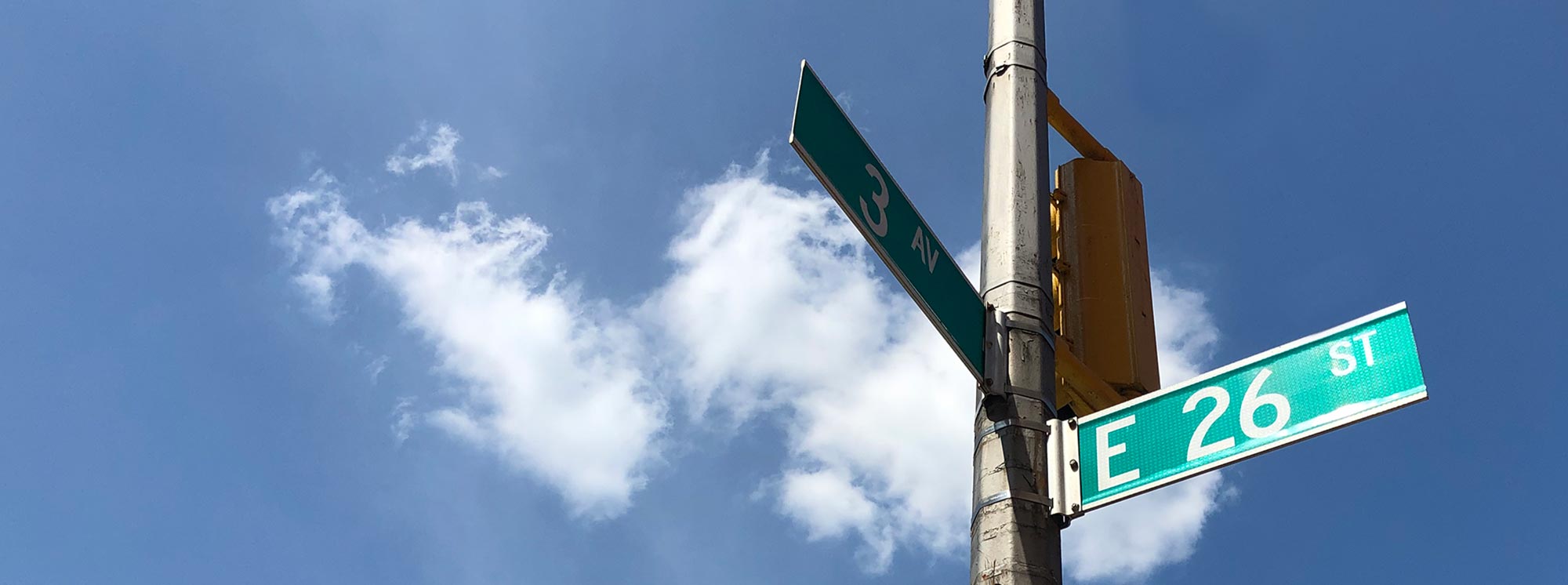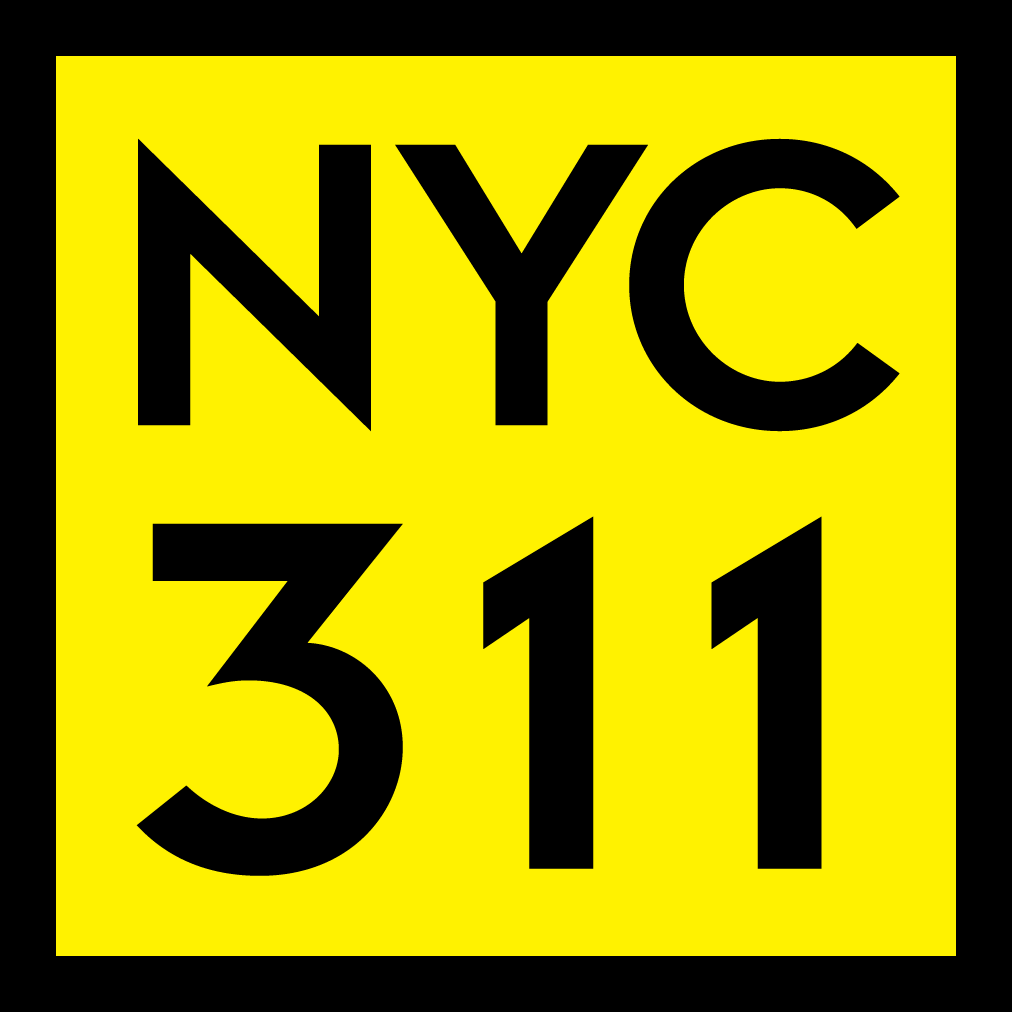

Welcome, Tenants of East 26 Street!
This site is run by tenants for tenants to connect and provide resources to those of us living in 220 and 225 East 26 Street. Let’s keep in touch, share news and information, and help each other.
Here you’ll find info on tenant resources, 220/225 resources, and our elected officials.
Tenant Resources
- Getting in Touch
- Your Lease Renewal Rights
- Tenant Rights in New York City
- Check Your Rent History
- Heat Season Regulations
- How to File a 311 Complaint
Getting in Touch
If you’re having issues with the building or management, you can reach out to us at tenants@26street.nyc and let us know what’s going on — we may be able to help or point you to someone who can.
Our tenant association also works closely with GOLES (Good Old Lower East Side), a great neighborhood housing and preservation organization. Michelle Nguyen is the very helpful person there that’s working with us these days. Feel free to get in touch with her at michelle@goles.org or by phone at 212.533.2541.
Your Lease Renewal Rights
Market-rate leases
For those with market-rate leases, you have new rights regarding lease renewals:
- If you’ve lived in your apartment for one year, the landlord must give you at least 30-days’ notice if they plan to raise your rent by 5 percent or more, or if they will not renew your lease.
- If you’ve lived in your apartment between one and two years, they must give 60-days’ notice.
- If you’ve lived there longer than two years, they must give 90-days’ notice.
Rent Stabilized Leases
Rent-regulated tenants have many more rights than market-rate tenants do, and the laws governing these rights were thankfully improved and expanded in June 2019. Here are some important points about rent stabilized lease renewals that you should know:
- Your landlord is required to send you your lease renewal between 150 and 90 days before your lease expires. You are still protected if your landlord does not send you a renewal lease. However, if you don’t receive one, please reach out to Michelle at GOLES (212.533.2541 or michelle@goles.org), the great housing organization that we’re working with.
- As a rent-regulated tenant you have the right to a renewal lease. You do not need to prove primary residency unless you are taken to court.
- Due to the new rent laws that passed, your preferential rent can not be removed. Any rider that says otherwise does not apply. When you return your lease, remove that rider.
- There are no longer any J-51 tax abatements at either of our buildings (220 or 225 East 26 Street). Any J-51 riders that are attached to your lease do not apply. When you return your lease, remove that rider.
If you have any questions about the above — your lease renewal or your rights as a tenant — please reach out to Michelle at Good Old Lower East Side (GOLES): 212.533.2541 or michelle@goles.org. GOLES has also created a flyer laying out this information if you’d like to download, print, and share it with neighbors.
Download the PDF “What to Know About Lease Renewals”
Tenant Rights in New York City
Rent-stabilized tenants are entitled to certain protections that market-rate tenants are not, but laws passed in New York State in 2019 greatly expanded the rights of all tenants. The following apply to all New York City tenants, no matter if their apartment is rent stabilized or market rate:
- The right to sublet: Under New York State law, tenants can sublet their apartments—even if your lease says otherwise. You must, however, follow specific procedures to sublet legally, including sending your landlord a notice of your intent to sublease with detailed information about your subletter through certified mail. If your landlord unreasonably withholds their consent for you to sublet, you can proceed with the sublet, and defend the case that the landlord starts against you in housing court by demonstrating that you followed the sublet procedures and the landlord unreasonably refused to consent.
- The right to assign: Similarly to subletting, you have the right to assign your lease to a new tenant if you follow procedures and get your landlord’s consent. If they unreasonably refuse consent, you can legally break your lease and move out early.
- The right to a roommate: Even if your lease says the apartment can only be occupied by the tenant and the tenant’s immediate family, as long as you inform your landlord within 30 days after the roommate moves in, that roommate can legally occupy the apartment with you.
- The right not to be retaliated against: According to New York law, landlords cannot retaliate against tenants who have filed complaints, enforced their own rights under the lease, or joined a tenants’ association. Retaliation could include not renewing a lease or charging the tenant additional fees as a penalty for their actions. Landlords found in court to have charged punitive fees will have to reimburse them triple what they charged.
- The right to be informed about upcoming changes to your lease: This right has been strengthened under the new 2019 tenant protection legislation. For market-rate tenants, if you’ve lived in your apartment for one year, your landlord must give you at least 30-days’ notice if they plan to raise the rent by 5 percent or more, or if they will not renew your lease. If you’ve lived in your apartment between one and two years, they must give 60-days’ notice; if you’ve lived there longer than two years, 90-days’ notice. For rent stabilized tenants, see Your Lease Renewal Rights on this website.
- The right to participate in a tenants association: All tenants are legally permitted to create, join, or participate in a tenants association.
- The right to occupy your apartment until the lease expires: Provided that you don’t do anything in breach of your lease—like illegally subletting it through Airbnb or keeping a pet in a no-pets building—or are being a nuisance—creating a safety hazard or damaging property, for instance—you have the right to remain in your apartment until the lease expires.
- The right to getting your security deposit back (minus the cost of repairs): The new rent laws state that tenants now have the right to have their apartments inspected by their landlords before they move out. Within 14 days of the tenant vacating, the landlord must provide them with an itemized list of the repairs their security deposit will be used for (if applicable) and return the balance. If the landlord doesn’t provide the checklist, they waive their rights to keep any of the deposit. Furthermore, landlords can no longer ask for multiple months of rent upfront; they can only require payment of one month of rent in advance as security. Tenants whose landlords are refusing to return their security deposits after they move out (and do not have grounds to keep them) can file a complaint with the state Attorney General’s office, which now has a bureau that mediates disputes over security deposits. Tenants could also opt to sue their landlords in small claims court, as long as the security deposit is under $10,000.
- The right to a habitable apartment: This guarantees you necessities like heat and hot water, treatment in the case of a pest infestation, and repairs and maintenance of your apartment, as well as an apartment free of persistent leaks and mold.
- The right to quietly enjoy the apartment: This is not a guarantee of quiet—perhaps an impossibility in NYC—but that your landlord can’t impede your peaceful use of the apartment.
- The right not to be discriminated against: Under New York City’s Human Rights Law, landlords cannot discriminate against prospective tenants on the basis of age, race, religion, sexual orientation, and a number of other protected categories. The same applies to tenants’ roommates.
- The right not to be harassed: The city outlaws landlord harassment of their tenants by serving unlawful eviction notices, threatening tenants, withholding necessary repairs, and more. It’s now a misdemeanor for a landlord to harass one tenant, and a felony to harass two or more.
- The right to certain legal protections if you breach your lease: If you are found to have breached your lease, and the landlord takes you to court, you now have 30 days to “cure” the violation after the court issues a decision — whether it’s related to illegal subletting, alterations, or creating a nuisance. If you break your lease, you could be protected from being sued by your landlord under the new laws. If you break your lease, the landlord has to make reasonable efforts to re-rent the apartment at the same rent you were paying or market-rate, whichever is lower. If you breach your lease, immediately go online and see whether the landlord is trying to re-rent the apartment. If they’re not, or they’re marketing the apartment for more than what you were paying, they’re violating the statute. That means that if they tried to sue you for breaching the lease, the case would get thrown out.
- The right to rent an apartment even if you’ve been blacklisted: The tenant blacklist is comprised of lists of NYC renters who have been involved in housing court cases and are distributed by screening companies to landlords. In the past, this could create major hurdles to renting an apartment for tenants involved in housing court battles. The new laws state that landlords cannot deny tenants apartments solely because they’ve been blacklisted, though this is difficult to prove.
- The right to new protections in holdover proceedings: If you’re brought into court on a holdover proceeding—a case to evict a tenant based on something other than nonpayment of rent—and the landlord wins, the courts now give you up to a year to move (before the new legislation, tenants had up to six months.) These protections do not apply if the landlord can prove the tenant is guilty of nuisance-like behavior, which could include hoarding, using an apartment for illegal purposes, harassing building employees or neighbors, or seriously damaging property.
This information is adapted from a February 2022 article in Brick Underground: Ask Sam: What are my rights as a NYC renter in a market-rate apartment?
Check Your Rent History
It’s important to know — or to find out if you don’t know — if your apartment is rent stabilized (rent regulated) or not. Tenants living in a rent stabilized apartment have many more rights than tenants in a market rate apartment, including regulated rent increases and more. Unfortunately, these two buildings have a history of tenants being legally overcharged for rent. The only way to know if you are due a rent reduction is to get your apartment rent history.
Whether you think your apartment is rent stabilized or not, you should get the rent history for your apartment — it’s the vital first step to understanding if the rent you’re paying is correct or not and what your rights are. It’s also really easy to do.
Once you receive your rent history, get in touch with us and we can help you interpret the history and see if your rent or status is accurate.
Online
The easiest way to get your rent history is through a new tool at justfix.org — just fill out your name and address and within a week or so you’ll receive your rent history in the mail. The whole process takes less than 5 minutes.
Alternatively, you can go directly to the NYS agency and apply there. Go to the “most common rent regulation issues” page of the New York State Division of Homes and Community Renewal.
- From the left column menu, select Access Your Apartments Rental History.
- At paragraph No. 1, select Rent Info - Submit a Question.
- At Reason / Select a Reason select either “All Reasons,” or if that’s not possible select “Apartment Rent History”.
- Fill in your information in the fields, and at Requestor Type, select “Tenant”.
- Click Submit Your Question and you’re done! You’ll receive a paper copy in the mail in about a week to 10 days.
By Phone
Text “rent history” to 646.783.0627 follow the prompts.
In Person
Go to the New York State Division of Homes and Community Renewal office (also known as DHCR or HCR) with the documents listed below.
The New York State Division of Homes and Community Renewal
25 Beaver Street, 4th floor
New York, NY 10004
(take the 4 or 5 subway to Bowling Green; the building is between New and Broad Streets)
Take the following documents, and ask for your complete rental history from 1984 to the present:
- New York State Identification, or any State ID, or
- Current or Expired lease for the apartment, or
- Utility bill for the apartment
Heat Season Regulations
The period between October 1 and May 31 each year is designated as “Heat Season” in New York City — and fortunately there are city and state laws that regulate what building owners are must do for tenants.
First of all, building owners are legally required to provide hot water to their tenants every day throughout the year at a constant minimum temperature of 120°.
Then, during Heat Season (October 1 through May 31), building owners are required to provide heat under the following conditions:

DAY
Between 6am and 10pm, if the outside temperature falls below 55°, the inside temperature must be at least 68°.
NIGHT
From 10pm to 6am, the inside temperature is required to be at least 62° (there is no outside temperature requirement for night hours).
If you don’t have heat or hot water when you should, first call the building super to notify them. If your heat/hot water isn’t restored, you can file a complaint online or by calling 311 (available 24/7). The TTY number is 212.504.4115.
The nyc.gov website has some excellent resources on heating regulations where you can download a Heat Season bulletin in multiple languages, check the status of a heat and hot water complaint, learn about the penalties that can be charged to a property owner who fails to provide heat and hot water, and more.
How to File a 311 Complaint
New York City’s 311 provides quick, easy access to government services and information. If you’re having a problem in the building or see something that’s not right, it’s important that you file a complaint with 311. With many problems you should try talking to your super first, but if that doesn’t work, calling 311 can help get action.
Filing a complaint is an important part of what we can do to improve our living conditions and retain our rights as tenants. When you file a complaint — whether it’s about no heat, no hot water, dangerous conditions, problems with the construction, non-functioning intercom, missing handrails, or whatever — it becomes documented as part of the official record, making an important evidence trail. People in the city and state agencies that can make a difference notice when there are a lot of complaints recorded.
2 Ways to File a Complaint: Phone Call or Online
You can file a complaint simply by calling 311, available 24/7 (the TTY number is 212.504.4115). Start out by telling the operator that this is a complaint about a residential building, and take it from there. Some of the operators are excellent and others aren’t so good, so if you are dealing with someone who isn’t helpful, just hang up and call again. Many complaints can be filed anonymously, but for some you have to leave contact info.
To file a complaint online, go here for tenant issues and find the category of problem you’re concerned with — things like “Apartment Maintenance Complaint,” “Building Construction Complaint” or “Heat or Hot Water Complaint in a Residential Building” — they list a lot of categories.
Some issues are easier to deal with by calling and some are easier to file online. Either way, when you file a complaint you’ll get a Service Request Number that you can track to see what progress is being made. If you’re having problems or questions with the 311 system, let us know.
News
Key Player Behind the Rent Stabilization Law Passes Away

The New York Times reports that “Frederic Berman, Protector of Renters in New York, Dies at 92.” He helped institute safeguards for tenants of 1.4 million rent-controlled apartments in the ’60s and was a key player behind the Rent Stabilization Law. You can read the full obituary here.
220/225 Resources
- Current Contacts for Building Management
- The First and Fifth Worst Landlords in the City
- Figuring Out the Rent Abatement
Current Contacts for Building Management
As of June 2, 2023, the contact info for building management is (as far as we know):
- Philisia James (Property Manager): 646-415-7777
- Grace Terminez (Property Operations Associate): gterminez@trihill.com / 646-462-3700
- Ashley Guzman (Property Operations Associate): 917-671-9831
- Main email: Group i Trihill: groupi@trihill.com
- Christine Monahan: Cmonahan@trihill.com
Supers:
- 220 Building Super (Joe): 917-681-2649
- 225 — no super
The office address is:
Tri-Hill Management LLC
22 West 21st Street, 10th Floor
New York, NY 10001
The First and Fifth Worst Landlords in the City

Congratulations goes to Chris DeAngelis, founder and principal of TriArch Real Estate Group (now TriHill), for his listing as New York City’s Fifth Worst Landlord in 2019, according to the New York City Public Advocate’s annual worst landlord list at the time. The New York Daily News reported on it here. New York City’s Public Advocate — Jumaane Williams — has a history of working on housing issues.
In more recent news — as reported in The City in December 2021 — David Schorr, a director at Sugar Hill Capital Partners who helped turn TriArch into TriHill management, was found at the Number 1 spot on the 2021 Public Advocate’s list of worst landlords. New York City real estate people make it difficult to know who actually is owning a building, but both Chris DeAngelis and David Schorr are linked to TriHill.
Figuring Out the Rent Abatement
Trying to figure out the rent abatement we’re owed in 220 and 225 is little complicated, so if you don’t want all the details, you can just skip down to Uh, just tell me how I can figure out what I’m owed. Even faster, go here for the Excel spreadsheets.
First, going forward (as of September 1) management will be applying rent abatements retroactively, so that the abatement for any given month will appear as a credit for the next month. For example, the abatement for September should appear as a credit on the October statement. Initially, the abatements were credited to the current month, so this is new.
In 220: you should be getting a 25% abatement beginning June 8 and continuing until the completion of construction in that building.
In 225 it’s more complicated: to sum up, in 225 the rent abatement is like this:
- Feb 11–May 10: 25% due to the gas shut-off
- May 11–June 14: 50% due to interruption of gas service for more than 3 months
- June 15 through the end of July: 75% abatement (50% for gas disruption + 25% for construction)
- August 1 through to the completion of construction: 25%
And then additionally in 225, there was no water on Friday, June 19. Management gave those tenants who were affected by the water shut-off an additional $250 abatement reflected in the July rent bill; they stipulated you had to contact them to let them know you were affected in order to receive that abatement.
Uh, just tell me how I can figure out what I’m owed
Management doesn’t have a good track record for administrative issues with rent, so it’s important that you make sure they are giving you the correct amount. Fortunately, Sara — a thoughtful tenant in 225 — has prepared a couple of Excel spreadsheets that make it relatively easy to calculate how much rent or credit due for May through September. Thanks, Sara!
It’s pretty easy — and if you don’t know how to use a spreadsheet just ask a neighbor! One sheet is for May and June, and the other is for July through September. Make sure to select the building you live in before you do the calculation. Questions? Just ask a neighbor or send us an email.
Excel files for download
Download Excel Worksheet to calculate your rent abatement for May and June.
Download Excel Worksheet to calculate your rent abatement for July through September.
Elected Officials
These are some of the elected officials who represent us — we encourage you to get in touch with them!







